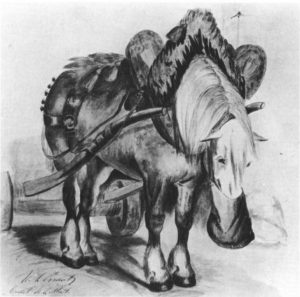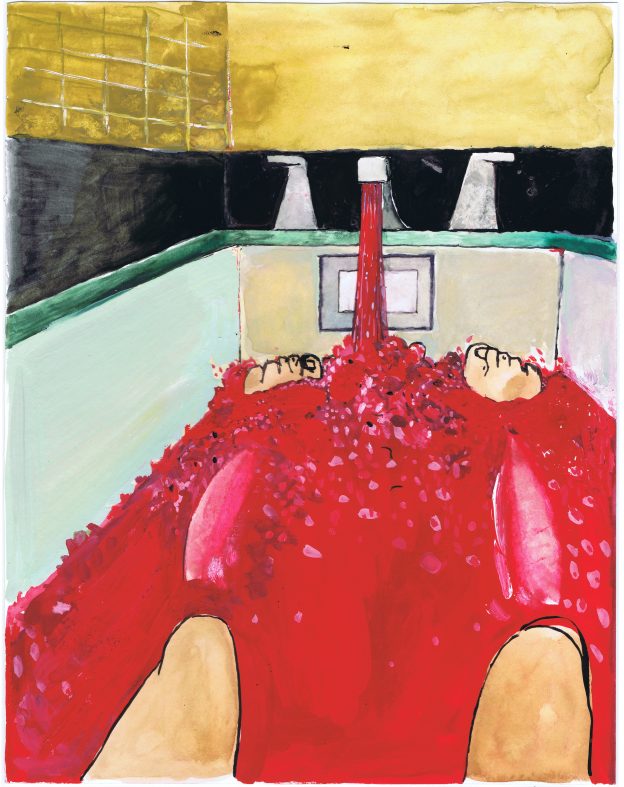Not quite murderabilia, but certainly the “artwork” of a mass murderer. George Bush is exhibiting his hideous, Socialist-realism style art. Dana Perino waxed orgasmic about the Bush art on that vapid program called “The Five.” From where Dana Ditz is perched, it’s fine to worship Bush and his puke paintings, but not Obama.
Bush’s art has a “Pogo the Clown” quality to it. The allusion is to the art of another mass murderer, John Wayne Gacy Jr. The boxy lines and the dead quality of the art of both men makes it difficult to tell the difference; the art of Bush Jr. has the same turgid quality as that of John Wayne Gacy Jr.
See if you can differentiate:


Bush even had the audacity to paint the faces of men he sent into an unethical, unconstitutional war, in violation of Just War Theory.

Bush and Gacy are not the first butchers to paint, if you can call it that. Ulysses S. Grant smeared paint around too. Grant’s muse was murder:
Sherman wrote to Ulysses S. Grant (commanding general of the federal army) in 1866, “even to their extermination, men, women and children.” The Sioux must “feel the superior power of the Government.” Sherman vowed to remain in the West” till the Indians are all killed or taken to a country where they can be watched.”
“During an assault,” he instructed his troops, “the soldiers cannot pause to distinguish between male and female, or even discriminate as to age.” He chillingly referred to this policy in an 1867 letter to Grant as “the final solution to the Indian problem,” a phrase Hitler invoked some 70 years later.
I must concede that Ulysses S. Grant was a lot more talented than the two other mass murderers. This poor horse, snout buried in a nose bag, has a long-suffering quality to it, almost like its illustrator had feelings for his subject.


